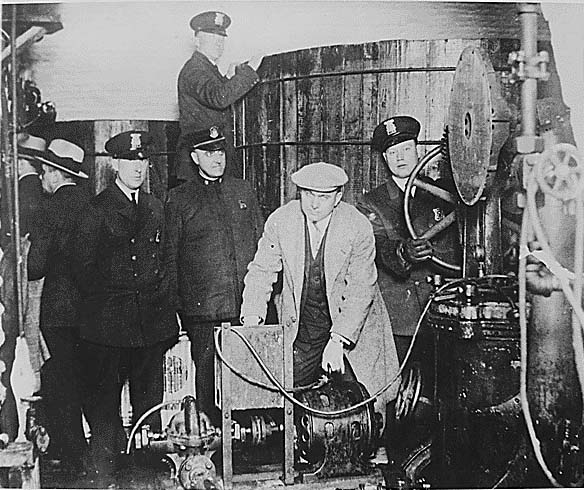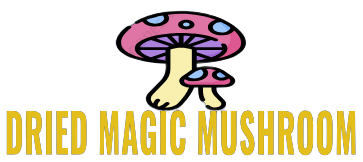Uncategorized
Are Magic Mushroom Spores Legal in My State?
What are the Magic Mushrooms Legal States? What are the mushroom laws by state in 2021?
Is it legal to grow psychedelic mushrooms? Where are magic mushroom spores legal? Many researchers are pleasantly surprised to learn that Psilocybe cubensis, or “magic” mushroom spores, are legal in most of the United States. On the topic of psilocybin spore legality this mushroom laws by state 2021 blog post gives you the most up-to-date information on psilocybe cubensis and about mushroom spores legal details, psilocybin spore legality, psilocybe cubensis grow kit usa legal information, grow kit legality, and for all relevant psychedelic mushroom spores legality issues for growing mushroom spores in your state.
Having said that, you must keep in mind that the legality of psilocybin mushroom spores is actually a more complex topic than it appears at first glance as well as . If you’re an amateur microscopist or mycologist interested in studying psilocybin spores and the detailed psilocybe cubensis spores legal ramifications, we recommend reading our articles on psilocybe cubensis spore legality for additional perspective along with, of course, doing your own due diligence.
Where are shrooms legal? Are magic mushroom spores legal? Is psilocybe cubensis legal in US? If you’re pressed for time, or want to know where are mushrooms legal in the USA, here are the broad strokes you need to understand: psilocybin mushroom spores are legal in the United States except for California, Georgia, and Idaho.
Psilocybin, including the psilocybin contained within mycelium or mature Psilocybe cubensis mushrooms is illegal everywhere in the United States. Is it legal to grow psychedelic mushrooms? No, that’s why we focus on mushroom spores. Psilocybe cubensis spores legal details are much clearer for research and studying. There are many states in the US considering psilocybin therapy legalization. Some municipalities have decriminalized psilocybin, but “decriminalized” is not synonymous with “legalized.” We cover this in more detail just below.
“Decriminalized” is not synonymous with “legalized.”
So, as you can see, there’s more to the mushrooms legality and psilocybin spore legality topic than meets the eye! There’s also the related subject of the benefits of psilocybe mushrooms and psilocybe cubensis benefits for therapeutic purposes, which are numerous. But for mushroom researchers who want to study psilocybin mushroom spores but don’t want to break the law, having an understanding of their regional laws is very important.
In this article, we’ll be discussing the three states which have outlawed mushrooms spores sold by psilocybe cubensis companies, why spores are legal everywhere else even though mature mushrooms are not, and which municipalities have decriminalized psilocybin – and what that might mean for the future regarding where are mushroom spores legal or decriminalized?
As we go along, the importance of understanding two key differences cannot be overstated:
- The difference between legalization and decriminalization
- The difference between a mushroom spore and a mature mushroom
In this article, you’ll learn about all mushroom spore legal details, about psilocybe cubensis information, and as well as other interesting and helpful information that every amateur microscopist should know including cubensis spore print information on mushroom spore prints. Let’s dive right in:
What’s the Difference Between Legalization and Decriminalization?

The difference between legalization and decriminalization is very important to understand. Unfortunately, many people use these terms interchangeably, which at best will lead to confusion, and, at worst, an unwanted brush with the law. It can be helpful to remember that sometimes the “language of the law” is very different from the casual conversations we usually have with one another.
So, at first glance, it seems pretty obvious—if something has been “de”-criminalized, that must mean it’s no longer illegal, right? Actually, no, that’s not right. Let’s explain why.
In regulatory terms, legalization is best understood as making a given action legal (i.e., not against the law, or “OK” to do without fear of punishment or consequences from the local governing body).

We usually use the term “legalization” or the past tense “legalized” to refer to an action which was once illegal, but is now legal. Perhaps the most well known example is the prohibition of alcohol in 1920s America. Here we see the entire spectrum: prior to 1920, alcohol was legal. During the prohibition period, it was illegal. After prohibition was reversed, alcohol was legalized.
Here’s a different example which perfectly illustrates the difference between legality and illegality and, pertinently, shows how one action might be completely legal, but when that action is modified, changed, or “taken in another direction” as it were, it no longer is. Picture this: it’s perfectly legal to get out of bed and make yourself a nice cup of morning coffee. It would, however, be illegal (and stupid!) to put a few shots of your favorite alcoholic beverage of choice into that coffee and then decide to go for a drive.
For our purposes, it’s important to understand that buying, selling, owning, and studying psilocybin mushroom spores is legal in most of the United States. Are psilocybe cubensis spores legal? Well, cultivating those spores into mature mushrooms—which contain psilocybin—is illegal. Like the coffee story, you’ve taken a legal action and modified it to become something illegal.
Now that we understand the terms legal, illegal, and legalization, we can move on to the other term in question, decriminalization.
Decriminalization is best described as when the criminal penalties attributed to an illegal act aren’t being enforced by the local governing body anymore. If described as “decriminalized,” it’s likely that an action is still illegal, but that offenders won’t be subject to criminal penalties—though they may still incur a fine or civil penalties.
With the above in mind, when we talk about places which have decriminalized psilocybin mushrooms in the United States—at the time of this writing, there are just three municipalities which have done so—it’s very important that you understand psilocybin and psilocin are still illegal in these areas, but if “caught” an individual won’t face as severe of a punishment as they previously would have.
Again, psilocybin mushroom spores are legal in most parts of the United States, but psilocybin mushrooms are not. With that in mind, let’s make sure we understand the difference between a spore and a mushroom:
What’s the Difference Between a Spore and the Other Stages of Mushroom Development?
For the sake of convenience, here’s a (very!) brief recap: a spore is the reproductive unit of a fungus. Spores are produced by the gills of a mushroom (the ribbed portion below the cap). Spores can appear as a fine powder.
Since the spores of Psilocybe cubensis and other psilocybin-containing mushrooms do not contain psilocybin, they are legal. However, once spores begin to germinate, they can form mycelium, and then mature mushrooms—which do contain psilocybin, and thus are illegal.
Amateur microscopists interested in studying Psilocybe cubensis spores are free to do so in most of the United States, as long as the spores are used for research purposes only. Even though it’s legal to own the spores, it isn’t legal to grow magic mushrooms.
In Which States Are Magic Mushroom Spores Legal – What Are The Mushroom Laws By State?
Magic mushroom spores are legal in all of the United States except for California, Idaho, and Georgia. While the motivation differs from one state to another, the general goal of legislators in these areas is to prevent the purposeful cultivation of psilocybin-containing mushrooms. Lawmakers believe that by preventing the manufacture, sale, and possession of psilocybin mushroom spores, these goals will be easier to meet—which is most unfortunate for law-abiding researchers.
However, in the other 47 states, the sale and possession of psilocybin mushroom spores is legal for microscopy, taxonomy, and general research purposes. This means that if you live in an area where psilocybin mushroom spores aren’t prohibited, you’re free to buy magic mushroom spores online in the Quality Spores shop.
California, Idaho, and Georgia Psilocybin Mushroom Spores Legality
California is one of the more interesting cases insofar as psilocybin is concerned, since the state has a historically progressive population and governing body. However, at the time of this writing, psilocybin is illegal in the state of California—and so are the spores of mushrooms that may eventually mature to contain psilocybin, even though the spores themselves do not.
Psilocybin Mushroom Spores in Idaho

In Idaho, magic mushroom spores are illegal, alongside any form of psilocybin, including in matured Psilocybe cubensis mushrooms.
This should come as no surprise to residents who may be familiar with the state’s longstanding prohibition of substances like cannabis. In Idaho, neither recreational or medicinal use of cannabis is permitted, and the state rallied against the federal 2018 Farm Bill, which reclassified hemp from a drug to an agricultural product.
Even though hemp, a variety of the cannabis plant, contains far too little tetrahydrocannabinol (THC) to be psychoactive, Idaho authorities still insist on charging those who possess or transport the plant under the state drug laws.
One could argue that psilocybin mushroom spores are even more benign than hemp, as they contain no psychoactive substances. This author suggests steering clear of spores in Idaho, as unfortunate as that may be—Quality Spores cannot and will not ship to this state.
Magic Mushroom Spores in Georgia
It’s illegal to sell or possess psilocybin mushroom spores in Georgia. As one of only three states to do so, residents aren’t hopeful that psilocybin or even the non-psilocybin-containing spores of the Psilocybe cubensis mushroom will be legalized or even decriminalized. The Georgia legal code refers to mushroom spores as “dangerous drugs” which will, when mature, contain “either psilocybin or psilocin.”
According to legislators in Georgia, “…mushroom spores which, when mature, contain either psilocybin or psilocin” count as ‘Dangerous Drugs.’”
– Georgia Code § 16-13-1
Unfortunately, amateur microscopists living in Georgia will have to avoid studying psilocybin mushroom spores for the foreseeable future.
Certain Municipalities Have Decriminalized Psilocybin
Once again, readers should be careful to note the difference between decriminalization and legalization, which we discussed earlier in this article (it’s important, so if you skimmed that bit, scroll back up and read it!).
The three municipalities in the Untied States which have decriminalized psilocybin are:
- Denver, Colorado
- Oakland, California
- Santa Cruz, California
Let’s talk about each area in more detail:
Psilocybin Decriminalization in Denver, Colorado
In 2019, legislators moved to decriminalize the personal use and possession of psilocybin as part of Initiative 301. It was a close vote that motivated 176,000 residents to have their voices heard—50.6% of voters agreed with the decriminalization movement, and 49.4% disagreed.
While psilocybin is still illegal in Denver—as it is everywhere in the United States—the change in local law means that the personal possession of psilocybin mushrooms is now among the lowest law enforcement priorities in Denver (both city and county).
Are psilocybe spores legal? Magic mushrooms remain a Schedule I substance in Denver, and selling them is still a felony crime. However, advocates of the Decriminalize Denver movement are hopeful that the changes will spur the rest of the state and the country to start seeing psilocybin in a more accepting, positive light.
Psilocybin is Decriminalized in Oakland, California and Santa Cruz, California
Just a month after the success of Initiative 301 in Denver, the city council of Oakland in California voted to decriminalize not only psilocybin, but other psychedelics contained within certain plants and fungi, such as peyote and ayahuasca. The vote was unanimous.
Personal possession of psilocybin in Oakland won’t be prosecuted as a criminal charge, however lawmakers were careful to note that the sale of psilocybin (and the other substances like peyote) will result in legal consequences. Oakland residents are also not allowed to possess these substances on any school grounds.
After Denver and Oakland decriminalized psilocybin, Santa Cruz in California was the third municipality to follow suit in 2020, with another unanimous vote by the city council. Like the decision made in Oakland, the decision wasn’t made just to decriminalize psilocybin, but other plant- and fungi-based substances as well. Much of the motivating force behind the initiative in Santa Cruz was thanks to Project New Day to overcome addictions with psychedelic therapy, whose founders were instrumental in promoting the safe and responsible use of psilocybin as means of a drug addiction treatment to the city council.
It’s Legal to Cultivate Psilocybin Mushrooms in New Mexico – With Some Important Caveats
In 2005, the New Mexico state Court of Appeals concluded that growing psychoactive mushrooms like Psilocybe cubensis isn’t prohibited by the state’s anti drug manufacturing laws. As it turns out, this was quite a good thing for at least one New Mexico resident. At the time, a man from Alamogordo, David Ray Pratt, had been growing psilocybin mushrooms at his home and was facing a felony drug trafficking conviction as a result of a 2002 raid. The Court of Appeals overturned the charge.
Growing hallucinogenic mushrooms isn’t prohibited by a New Mexico law against manufacturing an illegal drug. That’s the legal conclusion of the state Court of Appeals, which has overturned the felony drug trafficking conviction of an Alamogordo man for growing psilocybin mushrooms in his home.
Albuquerque Journal, 2005
If you’re interested in learning more about David’s harrowing brush with the law, and the state-wide legal ramifications of the court’s decision, please read about New Mexico’s psychedelic laws and the state’s laws about psilocybin.
Federally, psilocybin and psilocin are still Schedule I substances, so traveling outside of the state isn’t an option. But within the state of New Mexico, one can grow them using psilocybin mushroom spores, which since the 2005 decision has lead to many visiting the state to enjoy a “legal trip.”
However, there’s an important caveat to understand about cultivating magic mushrooms in New Mexico: dried mushrooms are still illegal to possess. Residents are still asking “is it legal to buy mushroom spores” or are mushroom spores legal or are mushroom spores illegal? The state views this as what might be considered an intent to distribute. It is legal to grow psilocybin mushrooms and consume them directly, but not to preserve them.
Advocates of the many benefits of psilocybin and of medicinal mushroom spores view the New Mexico decision as a step in the right direction for those interested in legally growing magic mushrooms for personal use.
Will Psilocybin Ever Be Legal in the United States?
Some believe that the decriminalization process is the first step to legalization. Is it legal to buy mushroom spores? With regard to psilocybin, only time will tell if this rings true—but many advocates, medical researchers, spiritual leaders, and mycologists are hopeful that this may eventually be the case.
If you’d like to learn more about the potential benefits of psilocybin (and there are many), there is plenty of scientific research available online. If you’re searching for a mushroom spore store we invite you try our mushroom spores. Many researchers believe that psilocybin is a powerful potential treatment for depression, anxiety, obsessive-compulsive disorder, addiction, and other mood disorders.
In the meantime, it’s perfectly legal to study psilocybin mushroom spores and to research and examine mushroom strains and to learn mushroom spores laws and legal details by state. If you’re an amateur or professional microscopist, mycologist, taxonomist, or just find a sense of wonder in exploring the many ways in which beauty and science intersect in our world.
We hope that you’ve found this article on states considering psilocybin therapy legislation informative, and we look forward to serving you!
